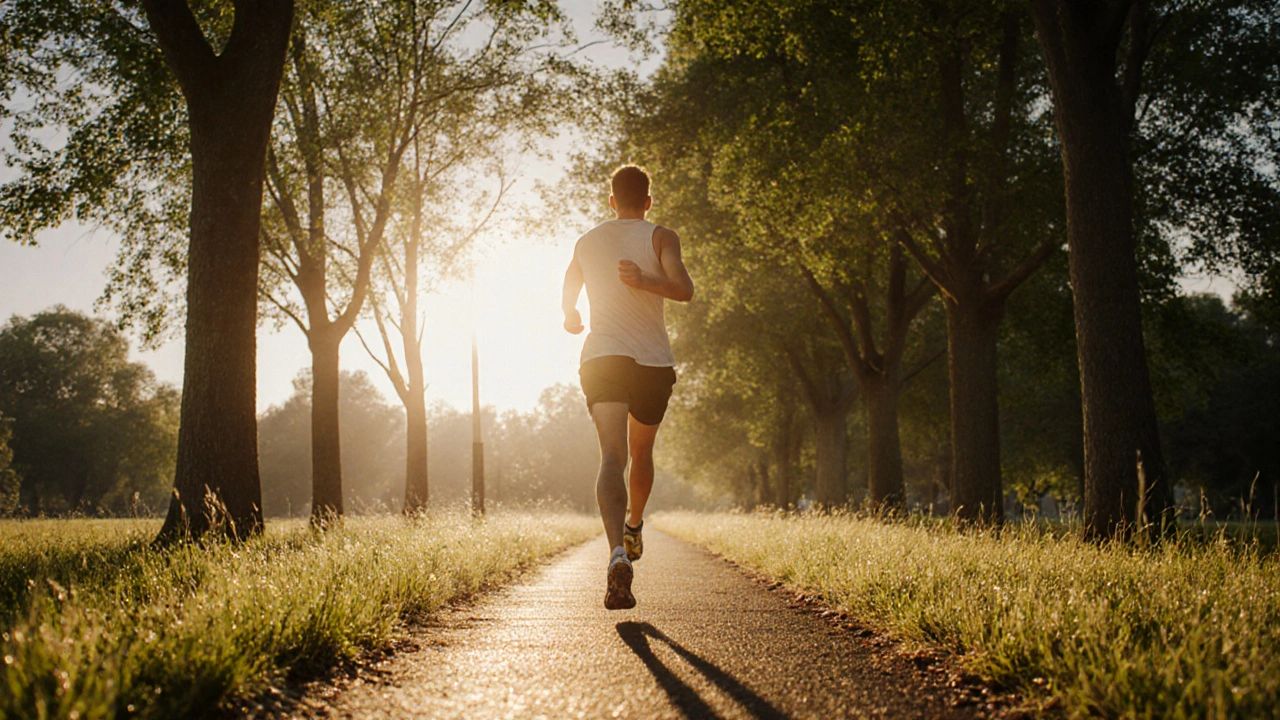Lifestyle Changes: Practical Ways to Boost Health
When talking about lifestyle changes, the set of daily habits you tweak to improve overall well‑being. Also known as healthy habit adjustments, it offers a roadmap for anyone wanting to feel better without drastic medical interventions.
One of the biggest pillars of exercise, regular physical activity that raises heart rate and strengthens muscles is moving more, not less. Whether it’s a brisk walk, a short home circuit, or a weekly yoga class, physical activity creates a feedback loop: you feel more energetic, you’re motivated to stay active, and your body adapts positively. Lifestyle changes that include exercise often see the biggest gains in mood and stamina.
Another core component is nutrition, the quality and balance of foods you consume day to day. Swapping sugary drinks for water, adding a vegetable side to meals, or timing carbs around workouts can shift blood sugar swings and curb cravings. Good nutrition fuels the body, supports recovery from exercise, and directly influences mental clarity.
Then there’s sleep, the restorative rest period that repairs brain and muscle tissue. A consistent bedtime, a dark bedroom, and limiting screens before sleep are simple tweaks that dramatically improve hormone balance, stress response, and even weight management. Sleep, nutrition, and exercise all intersect: lack of sleep can sabotage appetite control, while poor diet can keep you tossing at night.
Why They Matter Together
These three habits don’t exist in isolation. Lifestyle changes encompass exercise, nutrition, and sleep as an integrated system. When you pair a morning jog with a protein‑rich breakfast and a regular sleep schedule, each element reinforces the other. The result is a stronger immune system, better blood pressure control, and a clearer mind.
Beyond the physical, mental health is a powerful driver. Chronic stress, anxiety, or depressive symptoms can derail even the best‑planned routines. Managing stress through mindfulness, social connection, or therapy creates the mental bandwidth needed to stick with new habits. In short, mental health influences lifestyle changes by shaping motivation and resilience.
Practical adoption starts with realistic goals. Instead of promising “run five miles every day,” aim for “walk 20 minutes after dinner three times a week.” Small wins build confidence, which fuels larger steps later. Trackers, habit‑stacking, and accountability partners are tools that make the process visible and measurable.
Safety matters, too. If you have a condition like hypertension, pheochromocytoma, or osteoporosis, tailor activity intensity and nutrition choices accordingly. For instance, low‑impact exercises such as swimming protect joints for those with bone loss, while calcium‑rich foods support bone density. Always check with a health professional before major shifts.
Technology can help but isn’t a substitute for common sense. Apps that remind you to move, log meals, or monitor sleep patterns provide data, yet the core decision‑making still rests with you. Use the data to spot patterns—maybe you notice late‑night snacking follows poor sleep—and then adjust the habit that’s breaking the chain.
Community support amplifies success. Joining online forums, local walking groups, or cooking clubs adds social pressure in a positive direction. Sharing recipes, workout tips, or sleep hacks turns solitary effort into a shared journey, making setbacks easier to recover from.
Finally, expect setbacks. Missed workouts, cheat meals, or a rough night’s sleep happen to everyone. The key is to view them as data points, not failures. Adjust the plan, keep the bigger picture in view, and move forward the next day.
Below you’ll find a curated collection of articles that dive deeper into each of these areas. From coping with mental health impacts of chronic conditions to safe exercise guidelines for specific diseases, the posts offer actionable advice you can start using right away.
Lifestyle Changes to Boost Low Libido & Sexual Health
Discover practical lifestyle tweaks-exercise, diet, sleep, stress reduction, and more-that can lift low libido and boost overall sexual health.
Read moreShingles Prevention: Lifestyle Tips & Vaccine Guide
Learn how lifestyle tweaks and the right vaccine can stop shingles before it starts. A clear guide for adults 50+ covering diet, stress, sleep, and vaccine choices.
Read more

